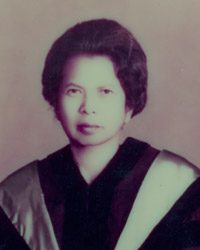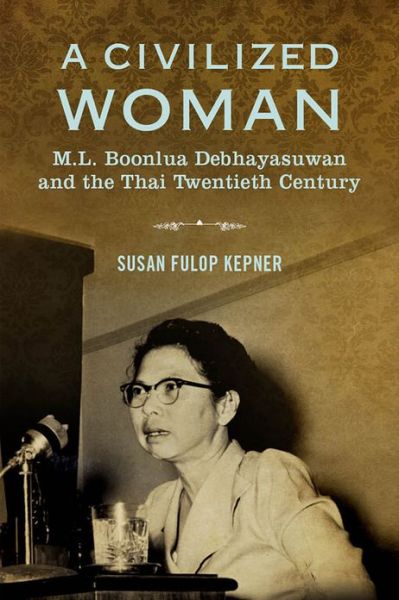Susan Fulop Kepner, A Civilized Woman: M. L. Boonlua Debyasuvarn and the Thai Twentieth Century
Chiangmai: Silkworm Books, 2013. Pp. 440, illustrations, notes, bibliography, index.
Reviewed by Thak Chaloemtiarana.
Long-time admirers of Susan Fulop Kepner’s translations and introductions to modern Thai literature have been waiting a decade and a half for this book. Most of us have read and used Dr Kepner’s translations of Botan’s Letters from Thailand [Chotmai chak mueang thai] (1977), Kampoon Boontawee’s A Child of the Northeast [Luk isan] (1991), and her anthology of writing about Thai women The Lioness in Bloom (1996) to introduce modern Thai prose fiction to non-Thai readers. We have heard of, if not read, her 1998 dissertation, written under the guidance of Professor Emeritus Herbert Phillips at Berkeley, and we wondered when we would have the chance to read a book version of that dissertation. The wait is now over, and Dr. Kepner has not disappointed us.
A Civilized Woman: M. L. Boonlua Debyasuvarn and the Thai Twentieth Century chronicles Boonlua’s early upbringing as the youngest of thirty-two children of a senior aristocrat and minor noble, her education in Catholic convent schools in Bangkok and Penang, her university education at Chulalongkorn University and the University of Minnesota, her career as a teacher, educator and civil servant, her bouts of illness, her late marriage, her life after retirement, and her career as a writer and novelist. Chris Baker published an excellent review of this book in The Bangkok Post on 4 November 2013. Those interested in a detailed synopsis of the book should read Chris Baker’s insightful review. I shall focus here on more a general review of Dr Kepner’s book, with particular attention to the depiction of the fading world of the Thai nobility after 1932 and especially to how elite upper class phu dii women as exemplified by Boonlua adjusted to political changes. I will also highlight Boonlua’s difficult time working and dealing with the Thai bureaucracy, and finally examine Boonlua’s views on the use and abuse of Thai literature.
The rest of this review is available here.
 Facebook
Facebook  Twitter
Twitter  Soundcloud
Soundcloud  Youtube
Youtube  Rss
Rss 
